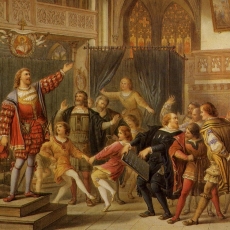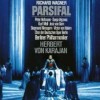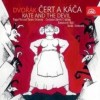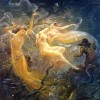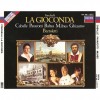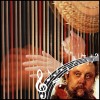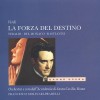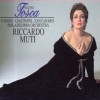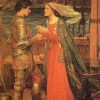Libretto
Die Meistersinger von Nürnberg (The Mastersingers of Nuremberg) is an opera in three acts, written and composed by Richard Wagner. It is one of the most popular operas in the repertory, and is among the longest still commonly performed today, usually taking around four and a half hours. It was first performed at the Königliches Hof- und National-Theater in Munich, on June 21, 1868. The conductor at the premiere was Hans von Bülow.
The story takes place in Nuremberg during the middle of the 16th century. At the time, Nuremberg was an Imperial Free City, and one of the centers of the Renaissance in Northern Europe. The story revolves around the real-life guild of Meistersinger (Master Singers), an association of amateur poets and musicians, mostly from the middle class and often master craftsmen in their main professions. The Mastersingers developed a craftsmanlike approach to music-making, with an intricate system of rules for composing and performing songs. The work draws much of its charm from its faithful depiction of the Nuremberg of the era and the traditions of the Mastersinger guild. One of the main characters, the cobbler-poet Hans Sachs, is based on an actual historical figure: Hans Sachs (1494–1576), the most famous of the historical Mastersingers.
In the first Act, the town goldsmith Veit Pogner announces that the winner of the St. John's Feast Day (Midsummer's Day) song contest will win the hand in marriage of his daughter, Eva. The only stipulation is that the winner must be, or become, a Mastersinger. Walther, a young knight who is already in love with Eva, determines to enter the contest, but his song is too radical, and he fails in his attempt to become a Mastersinger. In the second Act, the town clerk Beckmesser decides to enter the contest and attempts to woo Eva, but unwittingly causes a riot. In the Third Act, the cobbler Hans Sachs helps Walther to compose a Mastersong with which Walther ultimately defeats his rival Beckmesser and wins Eva.
Die Meistersinger von Nürnberg occupies a unique place in Wagner's oeuvre. It is the only comedy among his mature operas, (he having come to reject his early Das Liebesverbot), and is his only opera centered on a historically well-defined time and place rather than a mythical or legendary setting. It is the only mature Wagner opera to be based on an entirely original story, devised by Wagner himself. It incorporates many of the operatic conventions that Wagner had railed against in his essays on the theory of opera: rhymed verse, arias, choruses, a quintet, and even a ballet. Die Meistersinger is, like Orfeo and Capriccio, a musical composition in which the composition of music is a pivotal part of the story.
Synopsis
Act 1
Scene 1
After a magnificent prelude, the curtain opens on the interior of St. Katherine's Church in Nuremberg. Mass is just ending as Walther von Stolzing, a young knight from Franconia addresses Eva Pogner, whom he had met earlier, and asks her if she is engaged to anyone. Eva is obviously besotted with Walther, but informs him that her father, the goldsmith and Meistersinger Veit Pogner, has arranged to give her hand in marriage to the victor of the guild's song contest on St. John's day (Midsummer's day), tomorrow. Eva's maid, Magdalena, induces David, Hans Sachs' apprentice, to tell Walther about the Meistersinger's art. The hope is for Walther to qualify as a Meistersinger during the guild meeting, traditionally held in the church after mass, and thus earn a place in the song contest despite his utter ignorance of the guild's rules and intricacies.
Scene 2
As the other apprentices set up the church for the meeting, David warns Walther that it is not easy to become a Mastersinger; it takes many years of learning and practice. He proceeds to give a confused lecture on the Meistersingers' rules for composing and singing. (Many of the tunes he describes were real master-tunes from the period.) Walther is obviously overwhelmed by the convoluted rules, but is determined to try for a place in the guild anyway.
Scene 3
The first Meistersingers file into the church: Eva's father Veit Pogner and the town clerk Beckmesser. Beckmesser, a clever technical singer who was expecting to win the contest, is distressed to see that Walther is Pogner's guest and intends to enter the contest. Meanwhile, Pogner introduces Walther to the other Mastersingers as they arrive. Fritz Kothner the baker, serving as chairman of this meeting, calls the roll. Pogner, addressing the assembly, announces his offer of his daughter's hand for the winner of the song contest. When Hans Sachs argues that Eva ought to have a say in the matter, Pogner agrees that Eva may refuse the winner of the contest, but she must still choose a Meistersinger. Another suggestion by Sachs, that the people rather than the guild should be called upon to judge the winner of the contest, is squelched by the other masters. Pogner formally introduces Walther as a candidate for admission into the Masterguild. Questioned by Kothner about his background, Walther states that his teacher in poetry were the writings of Walter von der Vogelweide and his teachers in music were the birds and nature itself. Reluctantly the masters agree to admit him provided he can perform a master-song of his own composition. Walther chooses love as his topic for his song and therefore is to be judged by Beckmesser alone, the "Marker" of the guild. Walther launches into a novel free-form tune, obviously breaking all the Meistersingers' rules, and his song is constantly interrupted by the scratch of Beckmesser's chalkboard, maliciously noting one violation after another. When Beckmesser has completely covered the slate with symbols of Walther's errors, he interrupts the song and argues that there is no point in finishing it. Sachs tries to convince them to let Walther continue, but Beckmesser sarcastically tells Sachs to stop trying to set policy and instead, to finish making his (Beckmesser's) new shoes, which are overdue. The rest of the Masters reject the knight.
Act 2
Scene 1
Evening in a Nuremberg street, at the corner between Pogner's house and Hans Sachs' workshop. David informs Magdalena of Walther's failure. In her disappointment, Magdalena leaves without giving David the food she had brought for him. This arouses the derision of the other apprentices, and David is about to turn on them when Sachs arrives and hustles his apprentice into the workshop.
Scene 2
Pogner arrives with Eva, engaging in a roundabout conversation: Eva is hesitant to ask about the outcome of Walther's application, and Pogner has private doubts about offering his daughter's hand in marriage for the song contest. As they enter their house, Magdalena appears and tells Eva about the rumours of Walther's failure. Eva decides to ask Sachs about the matter.
Scene 3
As twilight falls, Hans Sachs takes a seat in front of his house to work on a new pair of shoes for Beckmesser. He muses on Walther's song, which has made a deep impression on him.
Scene 4
Eva approaches Sachs, and they discuss tomorrow's song contest. Eva is obviously unenthusiastic about Beckmesser, who appears to be the only eligible contestant. Eva hints that she would not mind if Sachs, a widower, wins the contest. Though touched, Sachs protests that he would be too old a husband for her. Upon further prompting, Sachs relates Walther's failure at the guild meeting. This causes Eva to storm off, obviously upset, confirming Sachs' suspicion that she has fallen in love with Walther. Eva is intercepted by Magdalena, who informs her that Beckmesser is coming to serenade her. Eva, determined to search for Walther, tells Magdalena to pose as her at the bedroom window.
Scene 5
Just as Eva is about to leave, Walther appears. He tells her about the fiasco at the meeting, and the two prepare to elope. However, Sachs has overheard their plans. As they are passing by, he illuminates the street with his lantern, forcing them to hide in the shadow of Pogner's house. Walther makes up his mind to confront Sachs, but is foiled by the arrival of Beckmesser.
Scene 6
As Eva and Walther retreat further into the shadows, Beckmesser begins his serenade. Sachs interrupts him by launching into a full-bellied cobbling song, while hammering away at the half-made shoes. Annoyed, Beckmesser tells Sachs to stop, but the cobbler feigns ignorance and tells him that he has to finish the shoes, whose lateness Beckmesser had publicly complained about in Act 1, by tomorrow. Beckmesser, who has spotted someone at Eva's window (Magdalena in disguise), has no time to argue. He reluctantly agrees to Sachs' proposal to play the role of Marker, indicating each mistake in the serenade with a thump on the shoes. Beckmesser begins, but makes so many errors that from the repeated knocks Sachs finishes the shoes. The entire neighbourhood is awakened by the noise. David sees Beckmesser apparently serenading Magdalena, and attacks Beckmesser in a fit of jealous rage. The other apprentices rush into the fray, and the situation degenerates into a full-blown riot. In the confusion, Walther tries to escape with Eva, but Sachs pushes Eva into her home and drags Walther into his own workshop. Quiet is restored as abruptly as it was broken. A lone figure walks through the street—the night watchman, calling out the hour.
Act 3
Scene 1
As morning dawns, Sachs is reading a large book in his workshop. Lost in thought, he does not respond as David returns from delivering Beckmesser's shoes. David finally manages to attract his master's attention, and they discuss the upcoming festivities – it is St. John's day, Hans Sachs' name day! David recites his verses for Sachs, and leaves to prepare for the festival. Alone, Sachs ponders last night's riot. "Madness! Madness! Everywhere madness!" (Wahn! Wahn! Überall Wahn!) His attempt to prevent an elopement had ended in shocking violence. Nevertheless, he is resolved to make madness work for him today.
Scene 2
This is one of the critical scenes of the opera: Sachs gives Walther an interactive lesson on the history and philosophy of music and mastersinging, and teaches him to moderate his singing according to the spirit (if not the strict letter) of the Master-Rules. Walther demonstrates his understanding by composing two sections of a new Prize Song in a more acceptable style than his previous effort from Act One. Sachs writes down the new verses as Walther sings them. A final section remains to be composed, but Walther is tired of words. The two men leave the room to dress for the festival.
Scene 3
Beckmesser, still sore from his drubbing the night before, enters the workshop. He spots the verses of the Prize Song, written in Sachs' handwriting, and draws the conclusion that Sachs secretly intents to enter the contest for Eva's hand. The cobbler re-enters the room, and Beckmesser confronts him with the verses. However, Sachs declares that he has no intention of wooing Eva, denies having written the song, and agrees to let Beckmesser take the poem with him; he even promises never to claim the song for his own. Beckmesser rushes off to prepare for the song contest, ecstatic at the prospect of using verses written by the famous Hans Sachs. Sachs chuckles about Beckmesser's foolishness but expresses hope that Beckmesser will learn to be better in future.
Scene 4
Eva arrives at the workshop. She is looking for Walther, but pretends to have complaints about a shoe that Sachs made for her. Sachs realizes that the shoe is a perfect fit, but pretends to set about altering the stitching. As he works, he tells Eva that he has just heard a beautiful song, lacking only an ending. Eva cries out as Walther enters the room, splendidly attired for the festival, and sings the third and final section of the Prize Song. The couple are overwhelmed with gratitude for Sachs, and Eva asks Sachs to forgive her for playing with his feelings, but the cobbler brushes them off with bantering complaints about his lot as a shoemaker, poet, and widower. At last, however, he admits to Eva that, despite his feelings for her, he is resolved to avoid the fate of King Mark (a reference to the subject of another Wagner opera, Tristan und Isolde), thus extending his blessing upon the lovers. David and Magdalena appear. Sachs announces to the group that a new master-song has been born, which, following the rules of the Meistersingers, is to be baptized. As an apprentice cannot serve as a witness for the baptism, he promotes David to the rank of journeyman with the traditional cuff on the ear. He then christens the Prize Song the Morning Dream Song (Selige Morgentraumdeut-Weise). After musing on their good fortunes, the group departs for the festival.
Scene 5
The feast of St. John is taking place in the meadow near the Pegnitz River. The various guilds hold their processions, culminating in the arrival of the Meistersingers. The crowd sings the praises of Hans Sachs, the most beloved of the Meistersingers. The prize contest begins. Due to his age the first contestant is Beckmesser, who attempts to use the verses that he had obtained from Sachs. However, he is unable remember and fit the words to an appropriate melody, and ends up singing so clumsily that the crowd laughs him off. Before storming off in anger, he yells that the song was not even his; Hans Sachs tricked him into singing it. The crowd is confused—how could the great Hans Sachs have written such a bad song? Sachs explains that the song is not his own, and also that it is in fact a beautiful song which the Masters will love, when they year it sung correctly. To prove this, he calls a witness: Walther. The crowd is so curious about the song that they allow Walther to sing it, and everyone is won over in spite of the song's novelty. They declare Walther the winner, and the Meistersingers want to make him a member of their guild on the spot. At first Walther is tempted to reject their offer, but Sachs intervenes once more, and explains that art, even ground-breaking, contrary art like Walther's, can only exist within a cultural tradition, which tradition the art sustains and improves. Walther is convinced; he agrees to join. Pogner places the symbolic Master-hood Medal around his neck, and the people sing once more the praises of Hans Sachs, the beloved Meistersinger of Nuremberg.





